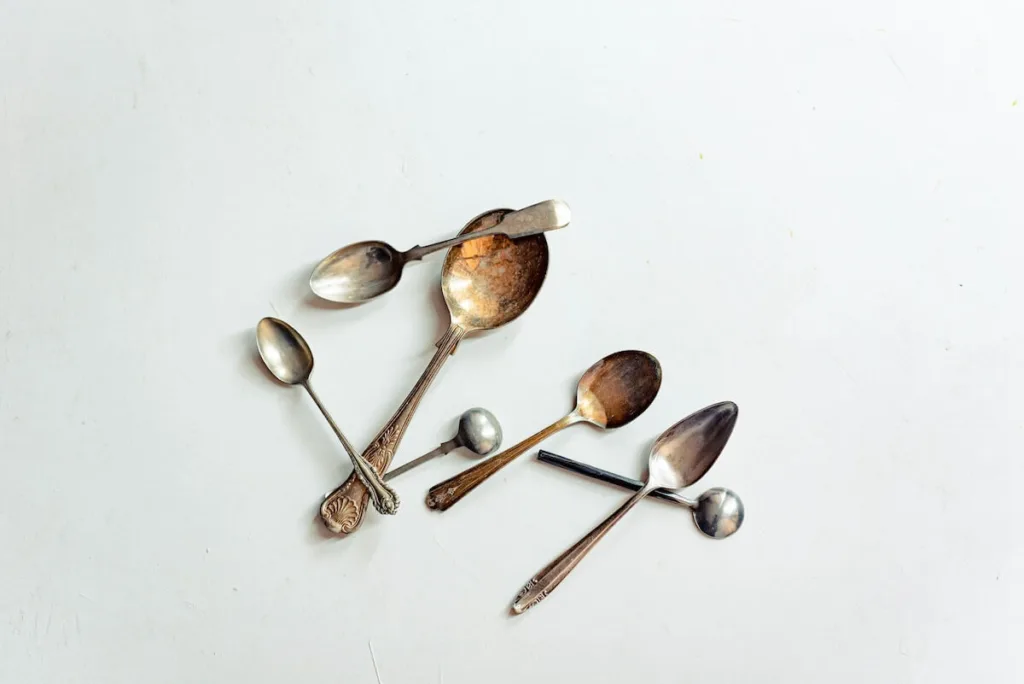Have you ever heard the phrase ‘I don’t have enough spoons’? Those of us who live with long-term mental health conditions, neurodivergence, chronic illness, and some physical disabilities, may use spoon theory to describe how our ability to deal with certain tasks fluctuates day to day. But what does it mean to have no spoons?
Where does the spoon theory come from?
The spoon theory was developed by Christine Miserandino, when she needed to find a way to explain to her best friend what it felt to have different energy levels day to day. While eating at a diner with a friend, she needed to take some of the medication she uses to manage Lupus. Her friend then asked the question that started it all – “What’s it like to have Lupus?”.
Now, Miserandino’s friend didn’t want to know what Lupus was, or what was involved in treating the condition – as her best friend, she knew the ins and outs of the autoimmune disease, and had attended many of Miserandino’s appointments with her. What she wanted to know was what it feels like to have the condition.
Miserandino looked around for a source of inspiration, impulsively grabbing all the spoons on the table, handed them to her best friend and said “here you go, you have Lupus”. Naturally, her friend looked at her in confusion, but Miserandino went on to explain that, when you have a condition like Lupus, you will need to know exactly how much energy (or spoons!) you have when you start your day or task. You’ll then be able to allocate the right amount of spoons for each task. Some tasks will take more spoons than others and, sometimes, you might not have enough spoons to take on a task at all.
This is the spoon theory. The principle that, when you’re living with an energy-limiting condition, you have to plan your spoons effectively to achieve all you need to.
Can the spoon theory apply to mental health?
Miserandino used Spoon Theory to explain her experience with Lupus, an autoimmune disease, but Spoon Theory also applies to people who are neurodivergent or live with mental health conditions. As someone who has lived with the impact of anxiety, clinical depression, and ADHD since my early teenage years, I know personally, how exhausting these conditions can be.
This is a long way of saying, yes of course spoon theory applies to mental health conditions or neurodivergence! Though these are not conditions that universally put those living with it in a category where they need to ration out their spoons, for some people, energy rationing is absolutely a key part of their lives.
What does this mean for my blog?
I have struggled to settle on the best direction for my blogging approach for many years. In part, this is down to my own waxing and waning mental health (which I now know to have been a result of undiagnosed and untreated ADHD), which leaves me with fluctuating energy levels. The most recent iteration, From the Slow Lane, was intended to focus on enjoying the slower times in life and not feeling shame when you need to take it steady in a world focussed on acceleration. It felt, in practice, a good way to focus on a topic that would suit my lifestyle but, it eventually felt too restrictive and uninspiring.
The next phase, and one that feels authentic to what I want to achieve, is to start conducting my content creation in a way that I can actually maintain, enabling me to focus on topics on days of all spoon levels. Where relevant, I’ll be adding a secondary ‘spoon’ category, splitting anything activity-based into high, medium, and low spoon days.
Behind the scenes, content ideas will also be split into low to high spoon level ideas. I’ll be able to draw on ideas which I either feel called to, or know that I have enough spoons to get through. For days and moments I have enough spoons to think of ideas but not enough to execute, I can add into this bank too!
Is this a mental health and neurodivergence blog?
No. Well, not strictly. Though content will be tagged up in the way outlined above, this should be considered an accessibility feature – there for those who need it (and potentially useful for those who don’t!). It’s also more an insight into how I’ll be supporting myself as an ADHD content creator behind the scenes. Meanwhile, the content itself is geared towards wellbeing, fostering a healthy lifestyle, and (above all) being kind to yourself – regardless of what’s going on in your head!
Will this stick or will it be my latest hyperfocus? You’ll need to stick around to find out!
Photo by Joanna Kosinska on Unsplash
